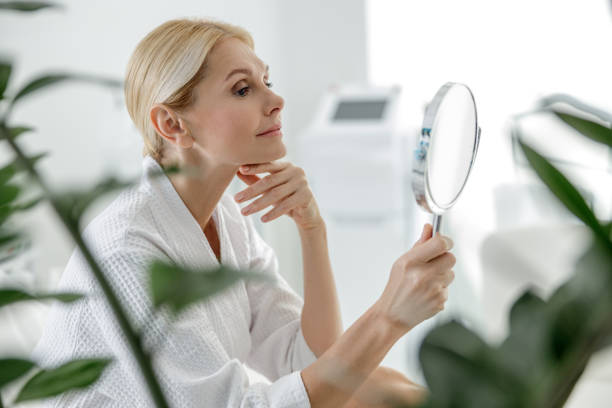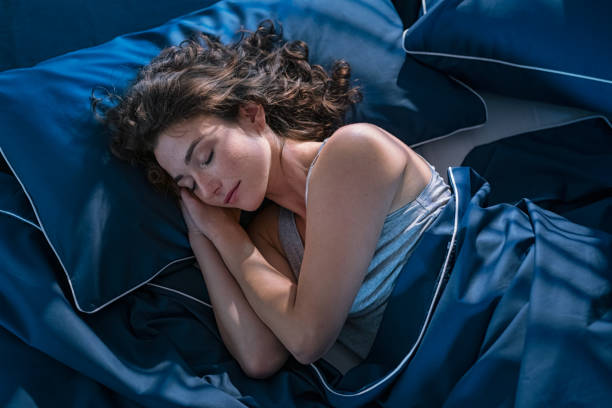
From time immemorial, the quest for eternal youth has been a common pursuit. But as Ponce de Leon discovered, there is no fountain of youth. However, there are certainly ways to slow down the aging process and maintain a more youthful appearance.
One way to achieve this goal is by optimizing your rest. In this article, we will examine sleep-promoting practices that will help you look and feel your best as the years go by.
1. Establish a Nighttime Skincare Routine
Your nighttime skincare routine can be a powerful ally in the battle against aging. It’s during sleep that your body undergoes important repair and regeneration processes. Therefore, it is the perfect time to boost these efforts with the right products and techniques.
First of all, cleansing your face before bed is non-negotiable. Remove makeup, oil, and other impurities to prevent clogged pores, breakouts, and dull-looking skin. A gentle cleanser suited to your skin type — whether dry, oily, or combination — is a good place to start.
Going beyond cleansing, you should incorporate anti-aging products into your skincare routine. Products with ingredients like retinoids, such as tretinoin, are known for their ability to stimulate collagen production. Collagen is a protein responsible for skin’s elasticity and youthful appearance. Retinoids also reduce fine lines and wrinkles and even out skin tone. They can help you maintain a glowing complexion.
The act of massaging these skincare products onto your face can be a calming ritual that prepares you for sleep. The rhythmic motion can reduce stress and create a tranquil feeling that encourages relaxation. It’s not just about the products themselves, but also about the process of winding down and pampering yourself before bedtime.
2. Limit Screen Time
Modern life is full of screens. From smartphones and tablets to laptops and televisions, you are likely being exposed to the blue light emitted by these devices constantly. This seemingly harmless exposure can have major consequences for your sleep quality and, also, for the aging process.
In addition to causing eyestrain, screen time can make it hard for you to nod off. Two or more hours of screen time at night can affect melatonin production enough to interfere with sleep. Melatonin is the hormone responsible for regulating the sleep-wake cycle. When exposed to blue light in the evening, your brain is tricked into thinking it’s daytime. This makes it more difficult to fall asleep and stay asleep once you have.
Furthermore, excessive screen time can lead to increased stress levels and overstimulation of the brain. The constant barrage of information, notifications, and visual stimulation you’re getting from screens can prevent you from winding down before bedtime.
To avoid these negative effects, implement a screen time curfew in the hour or two leading up to bedtime. In place of social media scrolling, adopt calming activities to signal to your body that it’s time to relax. Try reading, taking a bath, or practicing gentle stretches.
3. Meditate
Meditation is a powerful practice that can work wonders for both your mental well-being and your anti-aging efforts. By engaging in regular meditation sessions, you can let go of the day’s stress and worries. This sets the stage for a restful night’s slumber.
Meditation has been shown to increase production of serotonin and melatonin, two key players in regulating mood and sleep. Higher levels of serotonin can improve your mood and decrease feelings of stress and anxiety. Serotonin, along with melatonin, creates the ideal conditions for a peaceful night’s rest.
In addition, meditation can reduce your heart rate and lower your blood pressure. As you enter a meditative state, your body’s stress response diminishes, and your parasympathetic nervous system, responsible for relaxation, activates. This is helpful for ensuring a rejuvenating night of sleep.
Beyond these physical benefits, meditation also activates parts of the brain associated with sleep control. Regular mediation can train your brain to slip into a sleep-conducive state more easily, further improving your sleep quality.
4. Get Enough Sleep
Sleeping for a full eight hours is often easier said than done, but the benefits for anti-aging are undeniable. During deep sleep, your body undergoes the most critical repair processes, including the production of collagen. Insufficient sleep can lead to the breakdown of collagen, resulting in fine lines and wrinkles. Dark circles and puffiness around the eyes are often exacerbated by lack of sleep. Ensuring you get enough rest is essential for achieving that refreshed look.
Getting adequate amounts of high-quality slumber is also vital to hair health. While you sleep, your hair follicles are nourished with essential nutrients, promoting healthy hair growth and fullness. Consistent sleep deprivation can lead to hair thinning and loss.
In order to get the shuteye your body craves, you’ll need to establish and stick to a sleep schedule. Abiding by your screen time curfew will assist you in this. You won’t find yourself up at 1 a.m. bingeing the latest series if you turn off the TV at 9 p.m. While you may be tempted to stay up late and sleep in on weekends, resist the urge. By maintaining your sleep schedule, your body will get in a rhythm that will help you drift off easily every night.
Beauty Sleep for the Win
Optimizing your rest for anti-aging benefits is a holistic approach. It involves a well-structured nighttime skincare routine, limited screen time, meditation, and a full eight hours of sleep.
By incorporating these practices, you can take very real steps toward preserving your youthful appearance and improving your overall well-being. Remember that the quest for anti-aging is not about defying the natural aging process. Rather, it’s about aging gracefully, feeling confident, and living a fulfilling life.
Published by HOLR Magazine.


